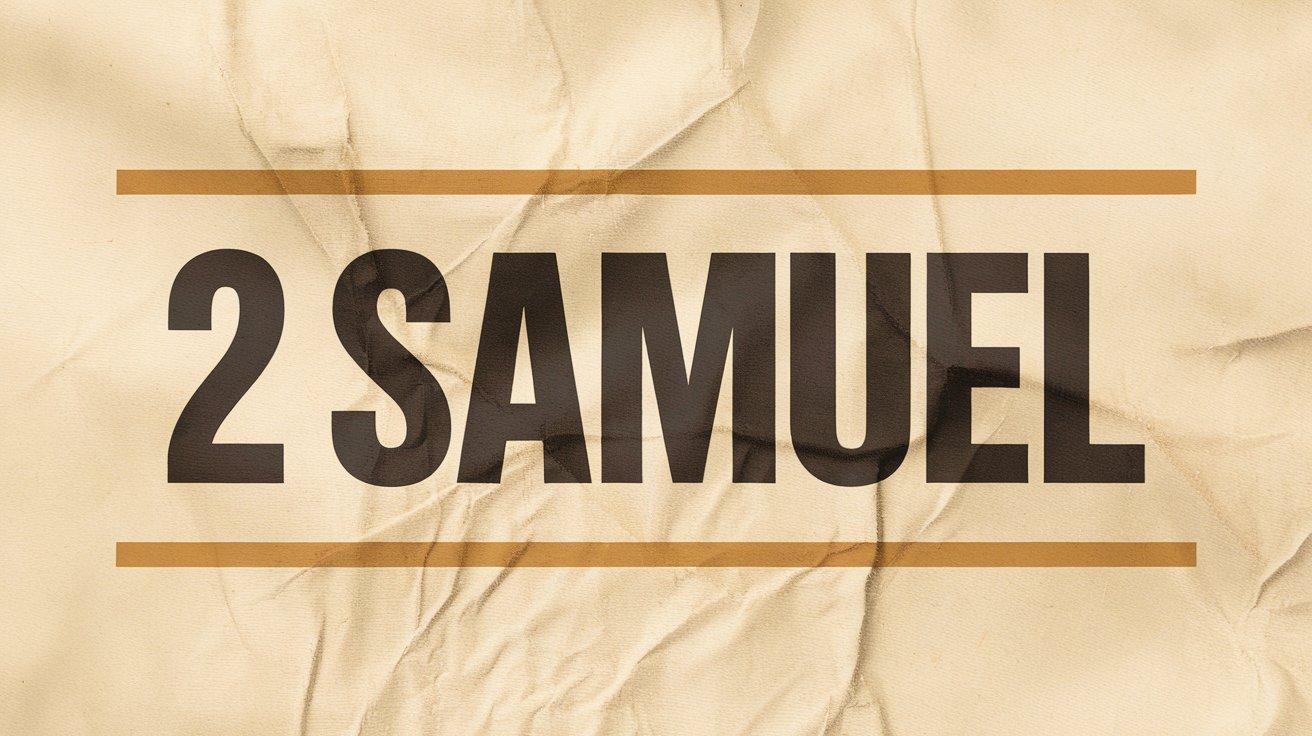When Power Politics Meet Divine Providence
What’s 2 Samuel 3 about?
David’s getting stronger while Saul’s house crumbles, but it’s messy—full of political marriages, brutal revenge, and the kind of family drama that makes modern soap operas look tame. This chapter shows us how God’s plans unfold through very human (and very flawed) people.
The Full Context
We’re in the thick of Israel’s civil war period, probably around 1000 BCE, when the nation was split between David’s growing kingdom in Judah and the remnants of Saul’s dynasty trying to hold onto power in the north. The author—likely drawing from court records and eyewitness accounts—is documenting this messy transition period to show how God established David’s throne despite (or maybe through) all the political chaos and human scheming.
This chapter sits right in the heart of 2 Samuel’s larger narrative arc about David’s rise to power. While 1 Samuel showed us God’s rejection of Saul and choice of David, these early chapters of 2 Samuel reveal the complicated, often violent process of that divine choice becoming political reality. The passage addresses the fundamental question that would have haunted ancient readers: How does God’s sovereignty work through human ambition, family feuds, and political maneuvering?
What the Ancient Words Tell Us
The Hebrew here is doing some fascinating work. When the text says David was “growing stronger and stronger” (chazaq), it’s using a word that means more than just political power—it’s about being established, made firm, like a tree putting down deep roots. Meanwhile, Saul’s house is described as “growing weaker and weaker” (chalash)—literally “becoming sick” or “failing.”
Grammar Geeks
The Hebrew uses a grammatical construction called the infinitive absolute here—halokh chazaq for David and halokh chalash for Saul’s house. It’s like saying “going and getting stronger” or “walking and getting weaker”—emphasizing the continuous, inevitable nature of these opposite trajectories.
But here’s where it gets interesting: when Abner “made himself strong” (chazzaq) in Saul’s house, he’s using the same root word that describes David’s growing power. The author is hinting that Abner is trying to grab what God has already designated for David.
What Would the Original Audience Have Heard?
Ancient readers would have immediately understood the political significance of David’s multiple marriages. This wasn’t about love—it was about legitimacy and alliances. Each wife represented a political treaty or a claim to power. When David marries Michal again, Saul’s daughter, he’s essentially saying, “I have a rightful claim to Saul’s throne through marriage.”
The list of David’s sons born in Hebron would have sounded like a royal registry to ancient ears. In a world where succession often led to civil war, having multiple male heirs was both a blessing and a potential curse. Each name would have triggered thoughts about future power struggles.
Did You Know?
Abner’s relationship with Rizpah, Saul’s concubine, wasn’t just personal—it was political dynamite. In ancient Near Eastern culture, taking a king’s concubine was tantamount to claiming his throne. This is why Ish-bosheth’s accusation hits so hard.
But Wait… Why Did They…?
Why does Abner suddenly switch sides after being accused of sleeping with Rizpah? On the surface, it seems like he’s just throwing a tantrum, but there’s more going on here. Abner realizes that Ish-bosheth is weak and paranoid—not the kind of leader who can unite Israel. His dramatic oath invoking God’s promise to David suggests he’s known all along that David was God’s chosen king.
But here’s the puzzle: if Abner knew David was God’s choice, why did he support Ish-bosheth in the first place? Maybe loyalty to Saul’s memory? Fear of losing his own position? Or perhaps he needed to see David prove himself first?
Wrestling with the Text
This chapter forces us to wrestle with how God works through morally ambiguous situations. David’s polygamy, Abner’s political opportunism, Joab’s murderous revenge—none of these actions get divine approval, yet somehow God’s purposes are being fulfilled.
The most troubling moment comes when Joab kills Abner under the pretense of blood revenge. Joab claims he’s avenging his brother Asahel’s death, but the text makes it clear this is also about protecting his own position as David’s military commander. David’s response—publicly mourning Abner and cursing Joab—shows he understands the political disaster this represents.
Wait, That’s Strange…
David’s curse on Joab’s family line is shockingly harsh—he wishes disease, disability, and violent death on Joab’s descendants. Yet David keeps Joab as his general for decades. It’s a perfect example of the tension between personal morality and political necessity that runs throughout David’s story.
What’s striking is how the narrative presents these events without heavy-handed moral commentary. The author lets the actions speak for themselves, trusting readers to see both the human failings and the divine providence at work.
How This Changes Everything
This chapter reveals that God’s promises don’t exempt us from the messy realities of human nature and political life. David doesn’t become king through some sanitized, miraculous process—he rises through a bloody, complicated series of events involving flawed people making morally questionable choices.
Yet somehow, through all this chaos, God’s purposes are being accomplished. David’s kingdom is being established, not despite the human drama but through it. This doesn’t justify the violence or moral compromises, but it does show us a God who works within history as it actually unfolds, not as we might wish it would.
“God’s sovereignty doesn’t smooth out the wrinkles of human nature—it works through them.”
For us today, this offers both comfort and challenge. Comfort because it shows God can work through our failures and complicated circumstances. Challenge because it refuses to let us off the hook morally or suggest that “God’s will” justifies whatever we want to do.
Key Takeaway
Even when everything seems to be falling apart—when families feud, leaders fail, and violence erupts—God’s purposes are still unfolding. Our job isn’t to clean up the mess first, but to trust that God can work through the mess we’re actually in.
Further Reading
Internal Links:
External Scholarly Resources:


